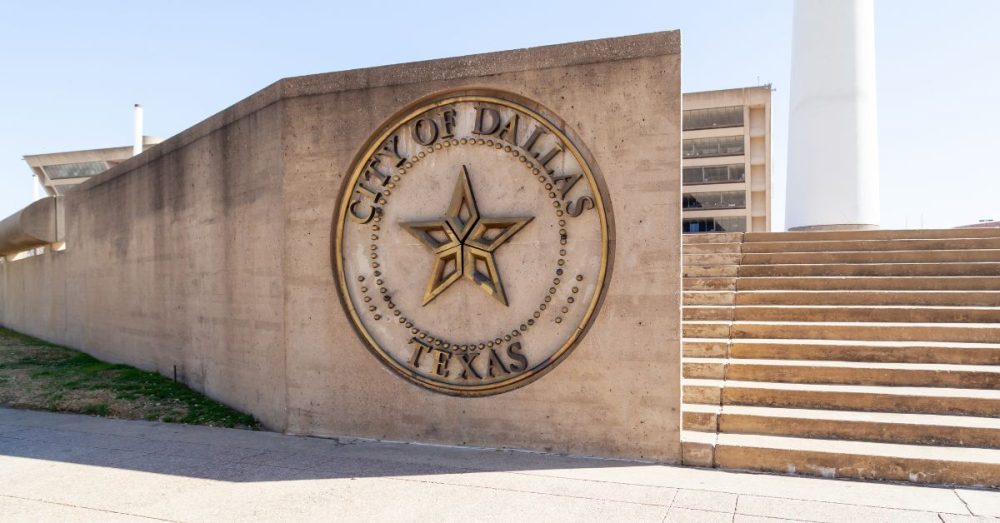Dallas citizens are petitioning for a series of changes to the City’s charter, but experts warn city leaders may try to spike the plans.
Dallas HERO, a bipartisan initiative that seeks to introduce citizen-backed amendments to the Dallas City Charter, is pushing for an amendment requiring the Dallas Police Department to hire 1,000 additional officers. Another amendment proposed by the group would increase city manager accountability, as previously reported by The Dallas Express. The group submitted the petitions with 150,000 voter signatures, which the city secretary must verify.
Citizen-driven petitions require a specific number of signatures from a municipality’s registered voters to be verified before the city council authorizes the proposal to go on the ballot in local elections.
The Dallas city secretary did not respond to a request for comment on the estimated timeline for the verification process of its pending citizen-led petitions.
Some experts say municipal leaders often oppose citizen-led petitions and find creative ways to counter them.
Matt Mackowiak is the co-founder of Save Austin Now, which successfully petitioned to get a proposition limiting homeless camping and solicitations on the ballot in Austin. His group rallied the necessary signatures to put Proposition B to a vote in 2021, which passed with 58%.
However, Mackowiak said the Democratic leadership in Austin worked relentlessly to spike the citizen-led initiative. The Austin City Council put the proposition on the ballot with what he described as misleading language aimed to sway the public. Save Austin Now sued the city council over the ballot language and won.
“[City leaders] all play games with ballot language,” Mackowiak told DX. “Cities don’t like citizen petitions because it reduces their power. It reduces their ability to control policy and to control decisions. It can be a very effective tool because it becomes a check on the powers of the city council and mayor.”
A spokesperson for the City of Austin told The Dallas Express its law department advises city council on “legal issues associated with ballot language for all elections.” However, the spokesperson emphasized that city council “makes the final decision on the language that will appear on the ballot.”
Charles Blain, the president of Urban Reform, said he faced backlash from city leaders in Houston who took issue with his efforts to advance a citizen-led petition aiming to limit the mayor’s control of the city council agenda. He submitted signatures for the petition in 2021 but was unable to get the proposition on the ballot until 2023 when it passed.
Blain said Houston leaders had a few ways to counter the petition. Houston has no requirement on when the signature verification process must be completed, which he said the city secretary likely used as an excuse to delay the process. This gave reason for the mayor to push the ballot initiative to 2023.
“There are too many areas that are blind spots currently where the cities can take advantage if they so choose,” Blain told DX. “There are some cities that do not make the rules clear, which allows them to have a lot of flexibility in what they do.”
“The citizen gets the short end of the stick,” he added.
The Houston city secretary did not respond to a request for comment.
Blain said he would like to see legislation passed in Texas that requires cities to adopt an organized process for verifying petition signatures and determining ballot language.
“It would make much more sense if the state had some clear[ly] defined language on how the process works and what the city’s responsibility is so everybody can be on the same page,” Blain told DX.
State Sen. Paul Bettencourt (R-Houston) introduced and passed SB221 in the Texas Senate last year. The bill required clear ballot language to be adopted and published before a citizen-initiated proposition could be put on the ballot. It died in the House.
“There’s all sorts of pushback against citizen petitions, which is just unwarranted,” Bettencourt told DX. “We will be filing the bill again to help monitor this bad public policy behavior.”
Mackowiak added he would like to see the legislature allow signatures to be collected digitally for citizen-led petitions, as opposed to the paper signatures cities commonly require.
“Limiting the ability of cities to monkey with legit efforts from citizens is a good idea,” he told DX. “I’d love to see legislation that allows for digital signatures. You’re telling me I can use my phone to buy a boat but not sign a ballot? It’s absolutely ridiculous.”
Stefani Carter, the honorary chair of Dallas HERO, said ballot initiatives are an essential aspect of a democratic society.
“Citizen-driven petitions are important for our community because citizens have a role in making a difference in city improvement,” Carter told DX. “Dallas HERO is looking to improve our public safety and city accountability by getting citizens involved [in such efforts]. It’s a direct avenue towards democracy, in essence.”


